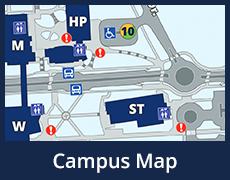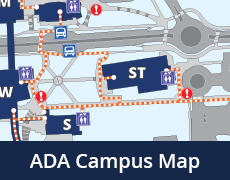Policy Number: III-15
Last Reviewed: April 16, 2019
Responsible Dept.: Human Resources
Office to contact for clarifications: Human Resources
A signed copy of this policy is available in the President’s Office.
Purpose:
To ensure that the college is in compliance with the Fair Labor Standards Act (FLSA) when compensating employees for travel time.
Definitions:
Exempt Position – A position not covered by the record-keeping and overtime requirements of the FLSA. To be designated as an exempt position, a review of the job duties of the position must show that the position meets one of the legal exemption tests. The exemption status of a position is reflected on the Employee Work Profile.
Fair Labor Standards Act (FLSA) – Federal legislation that, governs and controls compensable work hours for non-exempt employees, such as, the 40-hour workweek, record-keeping, and overtime pay requirements. It is enforced by the U.S. Department of Labor.
Non-Exempt Position – A position covered by the record-keeping and overtime requirements of the FLSA. To be designated as a non-exempt position, a review of the job duties of the position shows that the position does not meet one of the legal exemption tests. If an employee completes a timesheet, an exemption test did not apply to the encumbered position. The exemption status of a position is reflected on the Employee Work Profile. Based on state policies, all part-time hourly wage positions are non-exempt regardless of duties performed.
Suffered or Permitted to Work – “Work not requested but suffered or permitted to be performed is work time that must be paid for by the employer.” For example, an employee who voluntarily continues to work at the end of the shift to finish an assigned task or to correct errors, or an employee remains at his/her desk while eating lunch and regularly answers the telephone and refers callers is determined to be working.
Policy:
Travel By Non-Exempt Employees – How to Manage and Compensate
Travel for work-related activities may be included as compensable work hours. The principles that apply in determining whether time spent in travel is compensable time depends upon the kind of travel involved. An employee who travels from home before the regular workday and returns to his/her home at the end of the workday is engaged in ordinary home to work travel, which is not work time.
The following addresses under what circumstances compensable time is accrued when a non-exempt employee travels to and from a work-related activity:
Travel During “Normal Working Hours” – Compensable time also includes rest days (typically Saturday and Sunday):
- Regardless if the travel is the same day or overnight, any official travel that occurs during the nonexempt employee’s normal working hours is compensable; including time spent waiting at an airport (or for other transportation); traveling as a passenger; or as the driver of a vehicle, excluding any meal breaks.
- Compensable time is also earned for travel during corresponding normal working hours on rest days, such as a Saturday or Sunday. For example, if the non-exempt employee’s normal work schedule is Friday through Thursday from 8 a.m. to 5 p.m. and the employee travels on a regularly scheduled rest day, such as Sunday, the employee will be compensated on Sunday for any travel time or time spent waiting for transportation between the hours of 8 a.m. and 5 p.m., excluding any meal breaks.
Same Day Out-of-Town Travel – A non-exempt employee is traveling as a passenger or is the driver on a special one-day assignment, such as to attend a seminar or training event, and no overnight stay:
- A non-exempt employee is compensated for all travel time before, during, and after the normal working hours to attend a work-related seminar, training session, or other one-day work assignment that does not require an overnight stay and is out-of-town, excluding any meal breaks. The employee is considered to be on a one-day special assignment that benefits the college.
Travel Requiring an Overnight Stay – A non-exempt employee is required to work during travel in order to be compensated outside of the normal working hours:
- Employees traveling out-of-town, when an overnight stay is required, are only compensated for the travel that occurs during their normal working hours (excluding any meal breaks); unless, the employee is working.
- Driving a vehicle, regardless of whether the travel takes place within or outside of the normal working hours will count as hours worked. Traveling as a passenger in a vehicle (airplane, train, bus, boat, or automobile) is not considered hours worked.
- Any verifiable work that the employee performs is considered compensable hours even if these hours are outside of their normal working hours.
- If the college provides hotel accommodations for overnight travel but the employee wishes to drive back home each day, travel time outside of the employee’s normal working hours will not be counted as hours worked.
- Time spent at an airport or in flight that occurs outside of normal working hours will only be compensable if the employee is performing verifiable work for the college.
- If an employee drives a vehicle, as a matter of personal preference, when an authorized flight or other transportation mode is available and the travel time by vehicle would exceed that of the authorized transportation mode, only the estimated travel time during the normal working hours associated with the authorized transportation mode will be counted as hours worked.
- Time zone changes must be taken into consideration. The time zone associated with the point of departure is used to determine whether the travel (or waiting for transportation) falls within the employee’s normal working hours.
Miscellaneous Issues to Consider upon Destination:
- The employee is not compensated for social events, sightseeing, meals without speakers or meals when work is not being performed.
- Time spent sleeping does not count as hours worked.
- The employee is compensated for attending all work-related and required events that involve training or a speaker.
Other Regulations
Employees in non-exempt positions, who are “suffered or permitted” to work beyond 40 hours in the college’s established workweek of Friday through Thursday, must be compensated for the additional hours at the overtime rate. Supervisors are encouraged to adjust the work schedule and provide employees time off during that same workweek in order to avoid an overtime situation.
When employees are suffered or permitted to work, the time worked must be counted and paid as compensable hours worked because the employee has not been completely relieved from duty. The reason is immaterial. The hours are work time and are compensable.
Sanctions
Supervisors and participating employees must adhere to and abide by all established applicable policies, procedures, and law.
Additional Information:
References
Fair Labor Standards Act (FLSA)
Contact Us
540-857-VWCC (8922)
24/7 Student Support Center
855-874-6690
TTY: All users 711
Address:
3094 Colonial Ave., SW
Roanoke, VA 24015
VWCC Alerts
We use the VW Mass Notification System to immediately contact you during a major crisis or emergency. Get more info and register!




